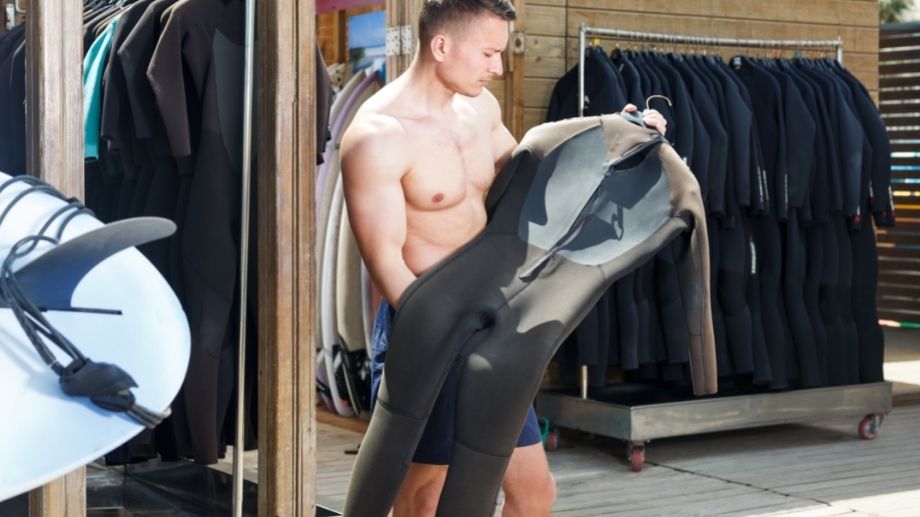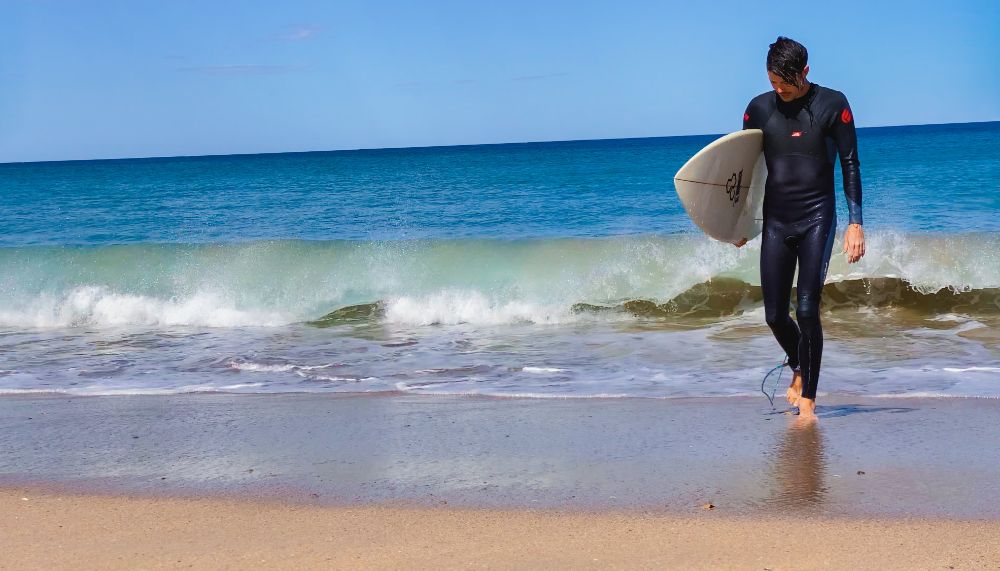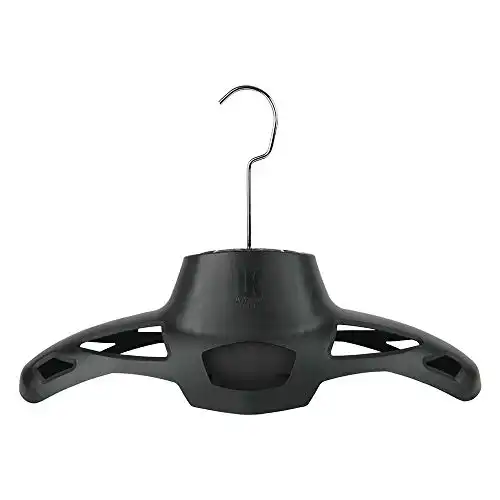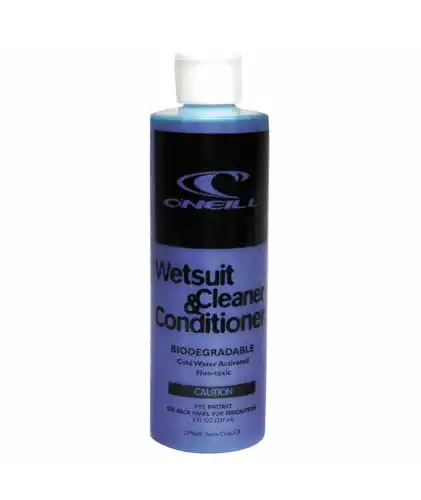Recently I had not one but two wetsuits die on me in the space of 1 year. One of them the back zipper broke, letting in copious amounts of water and on the other the chest ripped as I was putting the wetsuit on.
After forking out the money to replace two wetsuits, I wanted to know how long wetsuits usually last and what I can do to help them last longer.
On average, a wetsuit will last for one to four years depending on the quality of the wetsuit, what it’s being used for, how often it’s used, and how well it’s cared for. High-performance wetsuits used daily may not even last a full season. High-quality wetsuits used sparingly that are well cared for may last for six years or more.
With some trial and error I finally landed on a wetsuit that worked for me — high enough performance to be comfortable while surfing and a high enough quality to last me a few seasons. I'm hoping to get 4-5 years out of my new wetsuits and I don't think that's unrealistic if I take care of them.
In this article I’ll teach you what factors influence how long a wetsuit will last, how you can make your wetsuit last as long as possible, and estimate how long wetsuits really last in different scenarios.
What Factors Affect How Long A Wetsuit Will Last?
Estimating just how long your wetsuit will last can be tricky. There are too many variables involved to put a solid number on it.
But knowing what factors affect the lifespan of your wetsuit can help you ballpark it.
UV Sun Exposure

One of the biggest killers of a wetsuit's longevity is UV sun exposure.
Wetsuits are made from a neoprene rubber that breaks down when exposed to the sun's harmful UV rays.
This can't be avoided when you're surfing however it's the drying process that really does the damage.
Ever heard that you shouldn't dry your wetsuit in the sun and instead should put it in a cool shady spot to dry? Yeh this is why.
Drying your wetsuit in the sun exposes it to UV rays which breaks down the neoprene rubber. Also, once it's completely dry the black color of the wetsuit will absorb a lot of heat from the sun which can also do damage.
Heat Exposure
Wetsuits aren't designed to be exposed to high heat and just like UV rays high-heat can break down the neoprene rubber making it stiffer and more likely to peel, tear and break.
Heat exposure can also damage the seams of your wetsuit or the neoprene at the seams (which is the most fragile section). A combo of heat and UV exposure is likely what caused my wetsuit to rip at the chest seams when trying to put it on.
Hot showers, being in the sun too long, being in front of the heater or being put in the dryer are all forms of heat exposure that can damage your wetsuit.
You can put your wetsuit in the dryer if you must, but you should put it on cold air only and taker it out before it's bone dry. There are better ways to dry a wetsuit fast than using heat.
One of the best ways is to use a wetsuit dryer. These push cool air through the inside of your wetsuit and dry them in as little as 1-2 hours. The UK HangAir (at Amazon) is an affordable wetsuit hanger that can be powered both from your wall outlet or your car.
This waterproof wetsuit hanger runs a fan that will blow air through your wetsuits and dry suits - drying them in hours not days. Stop bad odors and dry suits quickly.
This wetsuit dryer can run off mains power or the 12V power from your car for on the road drying.
The Quality Of The Wetsuit Matters
In general, higher-quality wetsuits last quite a bit longer than cheaper ones (with one exception that we’ll talk about below).
When I bought my first high-quality wetsuit, I was amazed at the difference when I compared it to my old, cheap suit side-by-side. Everything from the stitching to the paneling to the neoprene itself was like night and day.
Fast forward two seasons and I was even more impressed. ‘This thing might last forever,’ I thought to myself.
It didn’t…
But it did last for way longer than my first few cheap suits.
Cheap suits are made from cheaper neoprene rubber and the biggest issue with these is that the rubber can become stiff and brittle over time, faster than high quality suits. Sometimes spending a little bit extra is a good idea.
Super High-Performance Wetsuits Won’t Last As Long
While it may seem counterintuitive, premium high-performance wetsuits might not last as long as other wetsuits — even those on the cheaper end.
This is the exception to the ‘quality makes a wetsuit last longer’ rule.
High-performance wetsuits, and I mean those at the very high end, are made of super soft and super stretchy neoprene and are designed to maximize performance — not longevity.
Despite being a much better quality, this type of neoprene breaks down faster and is more prone to rips and tears than an average wetsuit.
This is for the pros who need the increase in performance when competing or riding big waves. For average surfers like me these high-quality suits might not be worth the cost.
How Often You Use The Wetsuit
Needless to say, a wetsuit that gets used daily is going to wear out faster than one used monthly.
I once had a wetsuit that lasted me 10+ years, but that's because I hardly wore it and it lived in a box most of it's life.
When your wetsuit is starting to wear out from use, you’ll notice that it feels thinner and stretched out — especially in areas that get hard use, like the armpits, crotch and the knees.
Using a wetsuit really infrequently, however, isn’t going to make it last forever. Neoprene has a shelf life, whether or not it’s being used.
How You Use The Wetsuit

Some conditions and activities will be more harsh on a wetsuit than others.
Surfers, for example, tend to wear out their suits a bit faster than divers because of all the extra high-intensity movement.
You've also got your chest, stomach and legs constantly rubbing against your surfboard and your knees when you're duck diving.
Salt water swimmers will need to replace their wetsuits more often than fresh water swimmers because salt water is tough on neoprene — no matter how well you rinse it.
People who swim or surf in chlorinated water, like in an indoor wave pool, should expect their wetsuit to break down even faster. The chlorine will make your wetsuit brittle very quickly.
If you do use your wetsuit in a chlorinated pool make sure to wash it well afterwards with a wetsuit cleaner or shampoo or a natural wetsuit cleaner alternative. A quick rinse isn't going to cut it for chlorine.
With a nice citrus smell this wetsuit cleaner is great at removing stubborn odors. Includes a conditioning agent to help extend the suit's lifespan while killing odor inducing bacteria.
Non-toxic and biodegradable it's a great way to give your wetsuit the cleaning it deserves.
How Well The Wetsuit Is Cared For
Taking good care of your wetsuit can really extend its lifespan, or at least not shorten it unnecessarily.
If you’re the type to ride your wetsuit hard and put it away wet (literally) or take it off, dripping in salt water, and toss it in the sun to bake, your wetsuit probably isn’t going to last for too long.
Taking the time to rinse, clean, dry, and store your wetsuit properly takes little effort and can really help extend its life.
Keep in mind, a wetsuit that smells horrible can probably be saved if you know the right tricks to get bad smells out of a wetsuit.
If You Want The Latest And Greatest
Wetsuit technology is advancing at a rapid pace.
If you’re worried about having the latest and greatest or really need to maximize the performance of your wetsuit, your old one will likely be out-of-date in a year or two.
So How Long Do Wetsuits Usually Last?

For the average wetsuit owner, let's say someone who uses their wetsuit a couple times a week through the summer, a quality wetsuit may last for up to three or four years.
If you’re a bit more hardcore, let’s say you surf four times a week from late spring through early fall, your wetsuit is likely to only last a year or two.
If we’re talking extremes, these numbers can stretch a bit further in either direction.
Rarely will a wetsuit last longer than eight years, unless you just completely ignore the signs that it’s wearing out or breaking down or if you hardly use it like I did with that old suit of mine.
If you surf daily in a high-performance wetsuit, you’ll be lucky to get a full season out of it.
How To Extend The Lifespan Of Your Wetsuit
The best way to maximize the lifespan of a wetsuit is to care for it properly. And trust me, it can make a big difference (I wish I could tell that to my younger self).
To properly care for a wetsuit and extend its lifespan:
- Rinse your wetsuit after every use — especially after swimming in salt water.
- Don’t use your wetsuit in chlorinated water.
- Hang your wetsuit to dry, right after rinsing it, in the shade on a quality wetsuit hanger.
- Wash your wetsuit after every couple of uses — don’t wait until it stinks.
- Store your wetsuit properly by allowing it to dry fully, folding it in half, and keeping it in a cool, dark place.
- Repair any holes and tears before using the wetsuit again, no matter how small.
Final Thoughts
It’s tough to estimate exactly how long a wetsuit will last. On average, expect one to four years — but don’t be too surprised if it lasts six months or six years either.
The main factors that influence how long your wetsuit will last are:
- The quality of the wetsuit.
- The type of wetsuit.
- How often the wetsuit is used.
- What the wetsuit is used for.
- How well the wetsuit is cared for.






